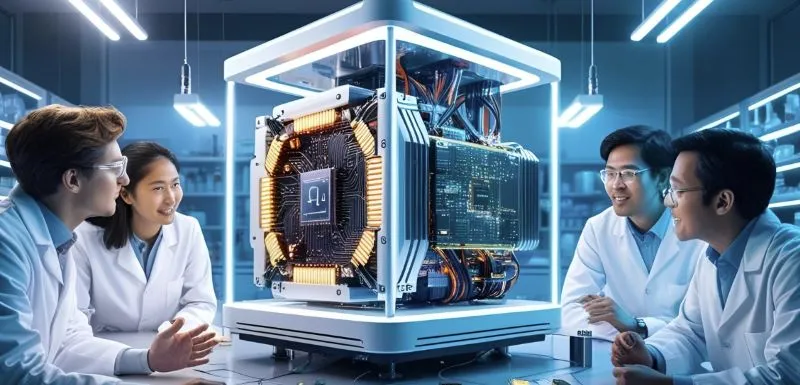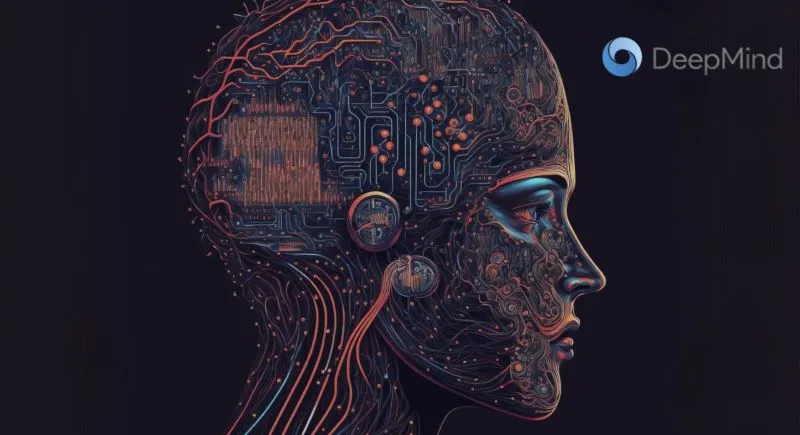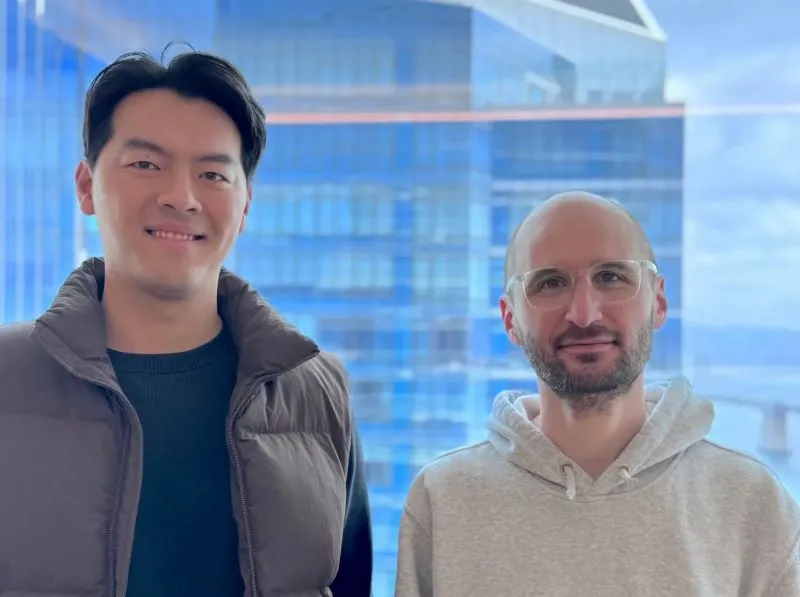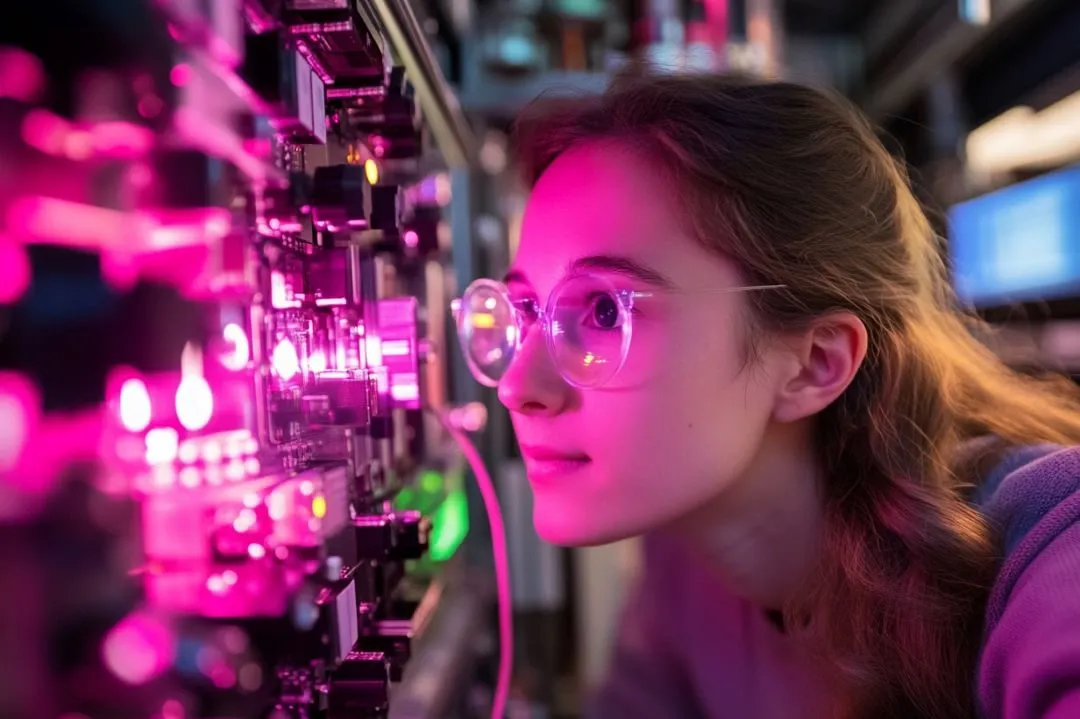Your Bite-Sized Updates!
Stay ahead in the fast-moving world of technology with quick, easy-to-digest updates. From the latest gadgets and AI breakthroughs to cybersecurity alerts and software trends, we bring you the most important tech news. Just the key insights you need to stay informed.
Quantum Computing Advances Toward Real-World Impact

Quantum computing continues to gain momentum as leading tech companies like IBM, Google, AWS, and Microsoft push boundaries with various approaches including superconducting qubits, trapped ions, and photonic systems. A recent WEF article highlights how businesses can prepare for quantum transformation through investment, education, and public-private collaboration.
Key developments include AWS’s Ocelot chip with built-in error correction and Microsoft’s topological qubit research using Majorana fermions. Despite challenges like error correction and scalability, hybrid quantum-classical models and government-backed research efforts are accelerating progress toward fault-tolerant quantum systems.
‘https://quantumzeitgeist.com/quantum-computings-promise-how-business-can-benefit-says-wef/
OpenAI Introduces “o3” and “o4-mini” — The Next Generation of AI Models
OpenAI has officially launched two new AI models under its evolving lineup: “o3” and “o4-mini.”
The “o3” model, made available to select users since early April, is believed to be the foundation for GPT-5, the next generation model expected to be publicly released later this year.
Meanwhile, “o4-mini” is a lightweight model in the o4 family, optimized for high efficiency and real-time performance on resource-constrained devices.
Though technical specifications remain under wraps, the shift from the “GPT” naming to the “o” series signals a new direction in model development—toward greater flexibility and broader applications beyond traditional chatbot usage.

Anthropic Prepares to Launch “Voice Mode” in Claude AI, Challenging ChatGPT

Anthropic is reportedly launching a new “Voice Mode” in its Claude AI chatbot as soon as this month, according to Bloomberg. The feature will include three English-language voices — Airy, Mellow, and Buttery — offering users a more natural, voice-based interaction with the AI.
Anthropic’s Chief Product Officer, Mike Kreiger, previously confirmed that the company had prototypes and planned to support voice internally, calling it “a useful modality to have.”
Voice Mode was first spotted in the Claude iOS app by app researcher M1Astra before Bloomberg confirmed its existence.
Founded by former OpenAI employees, Anthropic has emerged as a major competitor to the maker of ChatGPT. The company recently introduced a $200/month plan for power users and launched a new research-focused AI tool earlier this week.
‘https://www.theverge.com/news/649175/anthropic-claude-ai-voice-mode-report
DeepMind Predicts Human-Level AI by 2030, Warns of Existential Threats
Google DeepMind has released a 145-page research paper forecasting the arrival of Artificial General Intelligence (AGI) by 2030, while warning it could pose existential risks capable of “permanently destroying humanity.”

The paper outlines four key risk categories—misuse, misalignment, mistakes, and structural risks—and urges early identification of dangerous capabilities. Though the report does not specify how AGI could lead to extinction, it stresses the societal responsibility to define acceptable risks. The paper also critiques the safety approaches of rivals Anthropic and OpenAI, calling for stronger training and oversight protocols. Experts say while the effort is commendable, more rigorous action is needed.
‘https://www.yahoo.com/news/google-deepmind-145-page-paper-160724450.html
Google Cloud Announces New Updates to AI Hypercomputer at Next 25 Event
At the recent Google Cloud Next 25 event, Google unveiled major updates to its AI Hypercomputer, the technology powering its customers’ most demanding AI workloads. Built to optimize both hardware and software layers, the AI Hypercomputer is engineered to deliver more intelligence per dollar for both training and inference tasks.
Key highlights of the update include:
- AI-Optimized Hardware: Google introduced the seventh-generation TPU, “Ironwood,” specifically designed for inferential AI models. Ironwood delivers five times greater peak compute capacity and six times more high-bandwidth memory (HBM) capacity compared to the previous generation TPU.
- Software Advances for Inference: Enhancements to the AI Hypercomputer’s software layer help developers better optimize compute resources and accelerate the path from model training to inference.
- Flexible Consumption Options: Businesses can now better manage costs with new flexible consumption models through the Dynamic Workload Scheduler.
‘https://blog.google/products/google-cloud/cloud-next-ai-hypercomputer-updates/

Adaptive Computer wants to reinvent the PC with ‘vibe’ coding for non-programmers

Dennis Xu, co-founder of the AI note-taking app Mem, has launched a new startup, Adaptive Computer, with the bold goal of reimagining how everyday people use and build software. Unlike traditional programming platforms, Adaptive lets users create full-featured web apps simply by typing a text prompt — a concept they call “vibe coding.”
Backed by a $7 million seed round led by Pebblebed and joined by investors including Conviction, Weekend Fund, Jake Paul’s Anti Fund, and Roblox CEO Dave Baszucki, Adaptive hopes to bring powerful creation tools to non-programmers.
The product, called ac1, is still in alpha mode but already enables users to create apps that include databases, file storage, user authentication, Stripe payments, and AI capabilities like speech synthesis and image generation — all without writing a single line of code.
Xu emphasizes that unlike competitors like Replit or Lovable, Adaptive is built from the ground up for true non-coders — no API keys or technical jargon required.
Early users have created a variety of apps, from AI storytelling tools to e-commerce sites. Adaptive is available in three subscription tiers: free, $20/month, and $100/month (Creator/Pro).
‘https://techcrunch.com/2025/04/22/adaptive-computer-wants-to-reinvent-the-pc-with-vibe-coding-for-non-programmers/
LLMs Can Think While Idle: Letta and UC Berkeley Introduce “Sleep-Time Compute” to Boost AI Efficiency

Researchers from Letta and UC Berkeley have unveiled “sleep-time compute”, a new technique enabling large language models (LLMs) to process context during idle periods — before user queries arrive. This proactive method reduces redundancy, lowers inference costs, and improves accuracy without increasing latency.
By separating static context from dynamic queries, models can precompute inferences and reuse them across related questions. Tests with GPT-4o and GPT-4o-mini showed up to 5× compute reduction, 13–18% accuracy gains, and 2.5× lower per-query cost when context was shared. The approach outperformed traditional strategies like pass@k and proved most effective on predictable queries.
This technique is seen as a promising step toward scalable, cost-effective, and more responsive AI systems.
‘https://www.marktechpost.com/2025/04/20/llms-can-think-while-idle-researchers-from-letta-and-uc-berkeley-introduce-sleep-time-compute-to-slash-inference-costs-and-boost-accuracy-without-sacrificing-latency/
xAI Adds Memory to Grok, Making It More Personalized and Competitive

Elon Musk’s AI startup, xAI, has introduced a new memory feature for its chatbot Grok, allowing it to remember past interactions and offer more personalized responses over time. Similar to ChatGPT and Google’s Gemini, Grok’s memory lets users see and manage what it remembers — with full transparency and control.
Currently in beta on Grok.com and its mobile apps (excluding the EU and UK), the feature can be turned off via settings, and individual memories can be deleted. xAI plans to expand the feature to the Grok experience on X in the near future.
‘https://techcrunch.com/2025/04/16/xai-adds-a-memory-feature-to-grok/










